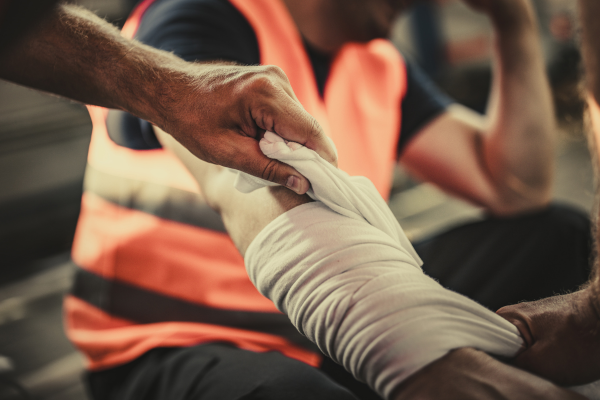
You’re entitled to certain protections and benefits if you’ve experienced a workplace injury in Florida. Florida has a structured workers’ compensation system to cover medical bills, lost wages, and other expenses as long as the injury occurred while performing your job duties. Here’s a breakdown of your rights and what to expect.
Right to File a Workers’ Compensation Claim
If you’re injured on the job, you have the right to file a workers’ compensation claim with your employer’s insurance. This is a no-fault system, which means you generally do not need to prove that the injury was anyone’s fault or caused by negligence. Workers’ compensation provides compensation regardless of who was at fault for the accident, whether it was you, a coworker, or your employer.
Important Deadlines:
- Report your injury within 30 days of the incident. Failure to do so may lead to a denial of your claim.
- File a formal claim with the Florida Division of Workers’ Compensation within two years from the date of injury, though it’s best to act promptly.
Right to Medical Care and Treatment
Under Florida workers’ compensation laws, your employer’s insurance is responsible for covering all reasonable and necessary medical expenses related to the injury. This includes:
- Doctor visits
- Hospital stays
- Surgery, if needed
- Physical therapy
- Prescription medications
You should note that you’re usually required to visit a doctor authorized by your employer or their insurance provider. You may not be able to choose your doctor unless the insurance provider approves it.
Right to Lost Wages Benefits
If your injury prevents you from working, you may be eligible to receive wage replacement benefits. The types and amounts vary depending on your situation:
- Temporary Total Disability (TTD): If your injury prevents you from working temporarily, you’re eligible to receive two-thirds (66.67%) of your average weekly wage, capped by state limits. This benefit is typically available until you return to work or reach maximum medical improvement (MMI).
- Temporary Partial Disability (TPD): If you can return to work but in a reduced capacity, you may be eligible to receive partial benefits, which make up part of the difference between your previous and current earnings.
- Permanent Impairment Benefits (PIB): If you have a permanent impairment due to the injury, you may be eligible for a percentage of your wages based on your impairment rating, which a doctor assigns.
- Permanent Total Disability (PTD): If your injury is so severe that you cannot work again, you may receive benefits for the rest of your life.
Right to a Safe Workplace and Employer Responsibilities
Florida law requires employers to maintain a safe work environment and uphold occupational safety standards. If an employer’s intentional negligence caused your injury, you might have grounds to file a separate lawsuit outside of workers’ compensation. You should consult a lawyer in this case, as the burden of proof is high for this type of claim.
Right to Disability Accommodations
If your injury results in a disability, you may have the right to reasonable accommodations at work under the Americans with Disabilities Act (ADA). This federal law protects employees with disabilities by requiring employers to provide reasonable adjustments, like modified duties or altered work hours, to allow them to continue working.
Right to Appeal a Denied Claim
If your claim is denied, you have the right to challenge this decision. Common reasons for denial include failure to report the injury on time, lack of documentation, or disputes over whether the injury is work-related.
- Filing a Petition for Benefits: You must file this with the Office of the Judges of Compensation Claims. The process can be complex, so you may want legal representation.
- Mediation and Hearing: After filing the petition, you’ll go through mediation. If that doesn’t resolve the dispute, a judge will hold a hearing to determine if you qualify for benefits.
Right to Return to Work or Vocational Rehabilitation
If you’re able to return to work but cannot perform the same duties as before, you may be eligible for job retraining or vocational rehabilitation. Florida’s workers’ compensation program offers resources to help injured employees acquire new skills or find suitable alternative employment.
Right to Privacy
Your medical information is private, and your employer cannot disclose details about your injury or condition without your consent, except for necessary communication with the insurance company or as required by law.
Seeking Legal Representation
Although you’re not required to have a lawyer to file a workers’ compensation claim, many people find legal representation helpful, especially if there are complications with their claim. An attorney experienced in Florida workers’ compensation can help you understand your rights, negotiate with insurers, and represent you in court if needed.
Contact a Florida Personal Injury Lawyer
If you have been involved in a personal injury incident, seeking legal advice is essential to protect your rights. Our legal team has more than 40 years of experience seeking justice for accident victims. Our attorneys have sought and won millions of dollars for our injured clients.
Call 850-601-1111 to schedule a complimentary consultation with no obligations. This consultation will help you explore your legal options. Let us help you fight for fair compensation.


